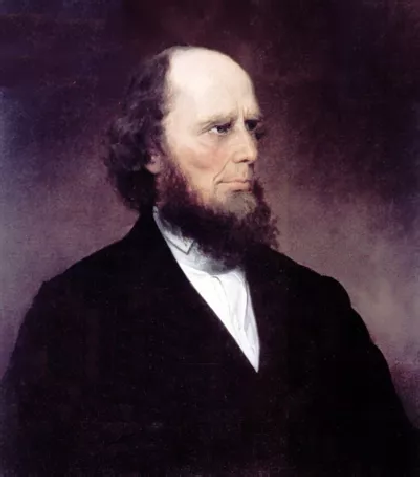




CROSSCARRIERS.COM
And he (Jesus) said to them all, If any man will come after me, let him deny himself, and take up his cross daily, and follow me. (Luke 9:23)

george@crosscarriers.com

Charles Grandison Finney
Page: Charles Finney The 19th Century Revivalist Who Shaped American Religion
Early Life and Background
Born: August 29, 1792, in Warren, Litchfield County, Connecticut
Early Profession: Trained as a lawyer
Religious Awakening: Experienced a profound born-again experience in 1821, which redirected his career toward evangelism and preaching
Career Shift: From law to revivalist preacher, becoming a leading figure in the Second Great Awakening
Influence and Legacy
Pivotal Role: One of the most influential revival preachers of the 19th century
Impact:
Reached large audiences across the United States during the Second Great Awakening
Known for his passionate sermons and emotional revival meetings
Emphasized personal conversion, moral reform, and social justice
Quotes and Recognition:
“Few men have had a more pervasive influence for holiness and revival in America than Charles Grandison Finney,” — Robert Coleman, 2005
“His anointed ministry, spanning half the nineteenth century, is said to have brought no less than 500,000 persons into the Kingdom of God, and introduced multiplied thousands more into what he called an experience of ‘perfect love.’”
Thematic Focus of His Ministry
Personal Revival and Conversion
"The Power of the Spirit in Conversion" — Emphasized the Holy Spirit's role in individual spiritual transformation
"The Prayer of Faith" — Encouraged believers to pray confidently, trusting in God's power to transform lives
Moral Responsibility and Social Reform
"The Gospel and Personal Responsibility" — Highlighted the importance of individual moral decisions in salvation
Advocated for abolitionism, women's rights, and societal renewal
Sermons and Addresses
While Finney did not leave behind a single "famous speech," his sermons are renowned for their passionate delivery and emphasis on:
Personal responsibility in salvation
The necessity of the Holy Spirit's work
Moral and social reform
Notable Sermons include:
"The Power of the Spirit in Conversion"
"The Prayer of Faith"
"The Gospel and Personal Responsibility"
Methods and Contributions
Innovative Techniques:
Utilized emotional appeals, logical arguments, and calls to action
Popularized the use of the "anxious bench" to encourage repentance
Emphasized personal decision and responsibility in spiritual growth
Educational Role: Served as a president of Oberlin College
Advocacy: Promoted the use of technology and new methods to facilitate revival and social reform
Conclusion
Today, Charles Grandison Finney is remembered as a key architect of American religious revival and a champion of social change. His legacy endures in his influence on Protestantism, social reform movements, and the ongoing emphasis on personal faith and moral responsibility.